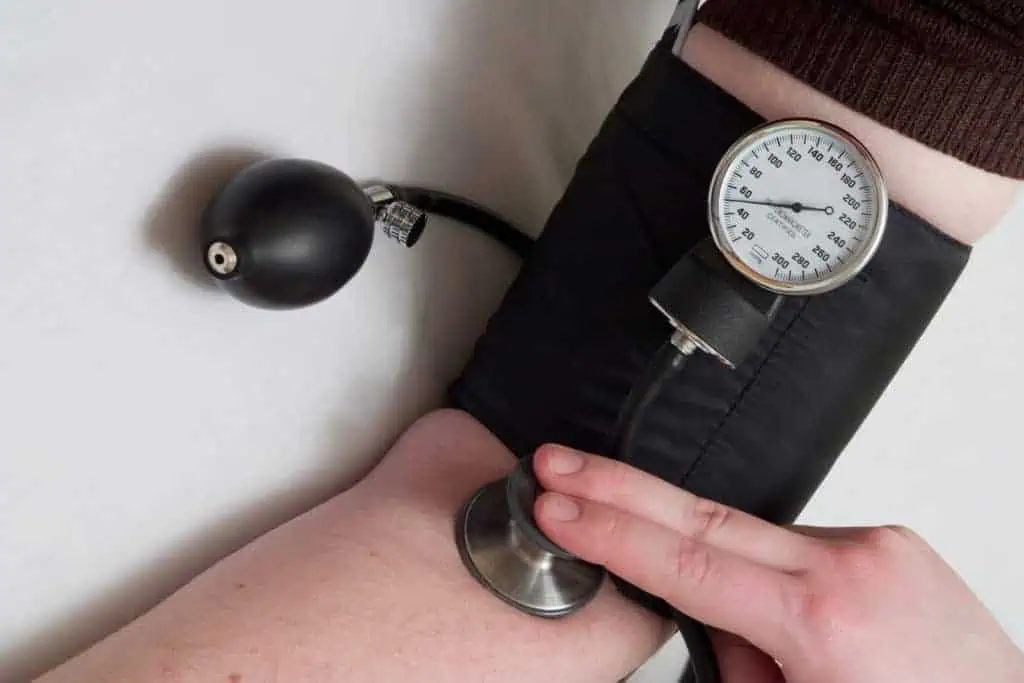Patients with uncontrolled high blood pressure may be unable to work because of their disease and its related complications. Those who find themselves unable to work may qualify for long-term disability for high blood pressure. The insurance company reviews the claim and determines if the individual qualifies under the terms of their disability insurance policy.
What Is High Blood Pressure?
When blood pressure in the arteries is elevated, for whatever reason, the heart is forced to work much harder than usual to keep blood circulating through the blood vessels at an average speed. This is usually referred to as high blood pressure but is also called hypertension or arterial hypertension.

Blood pressure is determined by two readings: systolic, the top reading, which determines whether the heart muscle is contracting, and diastolic, the bottom reading, which shows whether it is relaxed between beats. Normal blood pressure is said to be between 100 and 140 systolic over 60 and 90 diastolic. High blood pressure is diagnosed if readings are consistently at or above 140 over 90.
Types of Hypertension
Hypertension is classified as either a primary or secondary case. Primary hypertension means that high blood pressure occurs without signs of other medical causes. Secondary hypertension means that high blood pressure is caused by some medical condition, particularly those affecting the kidneys, arteries, heart, or endocrine system. People who are obese or who have an adrenal gland disorder are most likely to have high blood pressure.
Complications of Uncontrolled High Blood Pressure
Those with high blood pressure run a higher risk than others of getting heart failure, heart attacks, strokes, artery aneurysms, and chronic kidney disease. Hypertension significantly lowers life expectancy and causes symptoms like nausea, migraines, difficulty with vision, and problems with concentration.
In severe cases, such as blood pressure readings of 180 over 110 or higher, evidence may appear of damage to vital organs due to hypertension. This is known as a hypertension emergency. Many individuals with even a mild form of this condition cannot maintain a job.
Ortiz Law Firm Can Help You Appeal a Wrongful Claim Denial
A long-term disability denial is not the end of your claim. Many people are denied benefits the first time they apply. You have the right to file an appeal and try to get more information that may help your case. Getting expert help is often the difference between being denied and being approved for benefits.
For example, we have seen long-term disability claims involving high blood pressure denied under the pre-existing condition exclusion…despite the claimant also suffering a heart attack that was not pre-existing. This is just one example, but it highlights the importance of discussing a claim denial and whether you should appeal with an attorney. Don’t give up.
Working with an experienced disability insurance attorney like Nick Ortiz will give you the best chance of getting the benefits you deserve for uncontrolled high blood pressure. While the process can be daunting, your experienced disability attorney will be able to guide you through it. We do not get paid until you win your case, so you can seek help without worrying about upfront costs or unexpected bills.
Get a Free Case Review with a Long-Term Disability Attorney
The Ortiz Law Firm has successfully represented people in disability cases across the United States. If you would like to talk to an experienced disability lawyer about your uncontrolled high blood pressure and its impact on your ability to work, call us at (888) 321-8131. We would be happy to evaluate your case and discuss how to help you through the appeal process.

